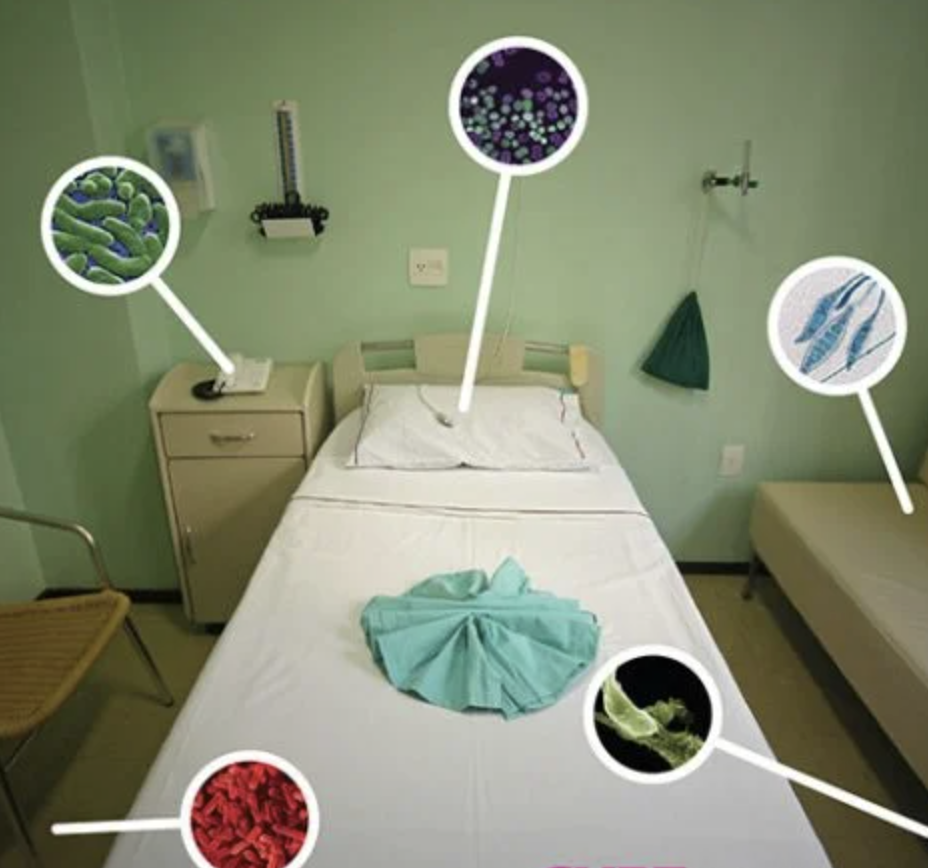
The Nordic discussions on Infection Control were quite interesting (https://www.gu.se/en/biomedicine/2nd-nordic-seminar-on-infection-control), but I couldn’t help but notice a significant gap in the approach. The word “Prevention” from the expression “Infection prevention and control” by the World Health Organization (WHO) seemed to be missing not just from the title of the seminar but also as a central concept.
The main focus appeared to be on how to handle infections once they occur rather than how to prevent them from happening in the first place. This was a bit surprising given the global emphasis on prevention as a key strategy in healthcare.
Additionally, I was somewhat taken aback by the lack of interest among the participants in hygiene in general. It was unexpected to hear someone like Agnes Wold, who is considered influential in this field, say something like “Hand hygiene is not my cup of tea.” This attitude seemed to be pervasive among the participants, suggesting that opinions were more rooted in existing routines rather than evidence-based practices.
What was particularly concerning was the complete absence of mask usage during the seminar, despite the presence of individuals coughing in the room. I also didn’t observe anyone using a hand hygiene product from their bag or pocket throughout the two days I participated at the event. Shaking hands were the normal practice for to present each other. Moreover, the dispensers at the entrances of the facilities were in terrible condition—corroded, dried out, and visibly dirty. This lack of attention to hygiene created the impression that hygiene wasn’t a priority in Sweden or the Nordic region, and that healthcare-associated infections weren’t a significant concern, warranting only basic soap and water hygiene in restrooms.
From a patient’s perspective, it was unsettling to learn that there seemed to be a prevailing opinion that healthcare providers aren’t responsible for infections contracted in healthcare settings. Logically, they should bear a significant responsibility. Those responsible for creating and implementing protocols for maintaining a safe environment for patients, based on the latest knowledge, as well as the practitioners of these protocols, are highly responsible for maintaining these standards. If a patient contracts an infection due to a healthcare provider’s inadequate hygiene practices, it’s clearly a failure of responsibility on the part of the healthcare provider.
Furthermore, considering that all participants frequently used their cell phones, it would have been relevant to inquire when they last cleaned their phones. Many surgeons use their phones even in surgical settings, which underscores the need for new hygiene standards in healthcare to protect patients from infectious diseases. Clean hands are of little use if they are constantly in contact with contaminated phones. International studies have shown that nearly half of the phones carried the coronavirus in hospital settings.
I had come prepared to discuss the advantages and disadvantages of various disinfection methods at the seminar. However, I quickly realized that we hadn’t even taken the first fundamental step of acknowledging that clean hands are paramount. So, there was no need to discuss how to achieve cleanliness and safety. This realization aligned more with the general public opinion that “the pandemic is over,” which was surprising considering the potential expertise present that could help prevent future viral and bacterial outbreaks.
Additionally, the lack of knowledge from a professor working on airborne transmissions who claimed that ”There are no problems connected to ethanol” and ”ethanol does not dry out hands” was quite shocking. This assertion contradicts the experience of many who use alcohol-based hand sanitizers and often need hand cream to counteract dryness. Working on airborne-related questions and neglecting ethanol as a volatile organic compound (VOC) that can produce harmful particulates or not recognizing the potential hazards of alcohol-based products is unwise. Some of these problems are even indicated on product labels with warnings like “Explosive” and “Fire danger.” Read more about the study conducted by FFI on switching from ethanol to alcohol free disinfection could lower the number of particles in the air by 30-60%.
Finally, it’s worth questioning whether a substance recently classified as a Class 1 carcinogen, such as ethanol, should be a standard in healthcare services and applied to our skin regularly. This issue deserves a deeper exploration, especially in the context of healthcare settings where safety and long-term health should be paramount concerns.
At Hygiene of Sweden we provide several international hospitals with our solution to hand hygiene that made the switch from ehtanol based on:
- Efficacy: BioPolymer+ is more effective against complex viruses and provides long-term protection, which is important for maintaining a safe and healthy environment.
- Workplace Environment: This product does not emit Volatile Organic Compounds (VOCs), making it safer for the workplace environment. Additionally, it doesn’t pose a risk for fire or explosion, which is crucial for safety.
- Abuse: It eliminates the risk of abuse, which could be related to misuse or consumption of ethanol-based products.
- Ethanol’s Classification: Ethanol is classified as a carcinogen (cancer-causing agent) in Class 1. This classification raises concerns about its long-term safety.
- Inclusive: The alternative product is more inclusive as it doesn’t pose problems for various groups of people, including those with allergies, asthma, religious restrictions, dry skin, psoriasis, or personal preferences.
- Sustainability: This product is more sustainable as it requires low energy for production and avoids the fossil fuel-intensive process used in ethanol production. Reference to our Environmental Product Declaration on BioPolymer+.
In the Nordics we keep working on lobbying for evaluating smarter methods of disinfection to meet future outbreaks and the ever more concerning problem of multi-resistant bacteria.
Where prevention of infections is key to limit the use of antibiotics.
Anders Karlsson, Participant from Hygiene of Sweden
Use disinfectants safely. Always read the label and product information before use.
Biocider ska användas på ett säkert sätt. Läs alltid igenom etiketten och produktinformationen före användningen.


